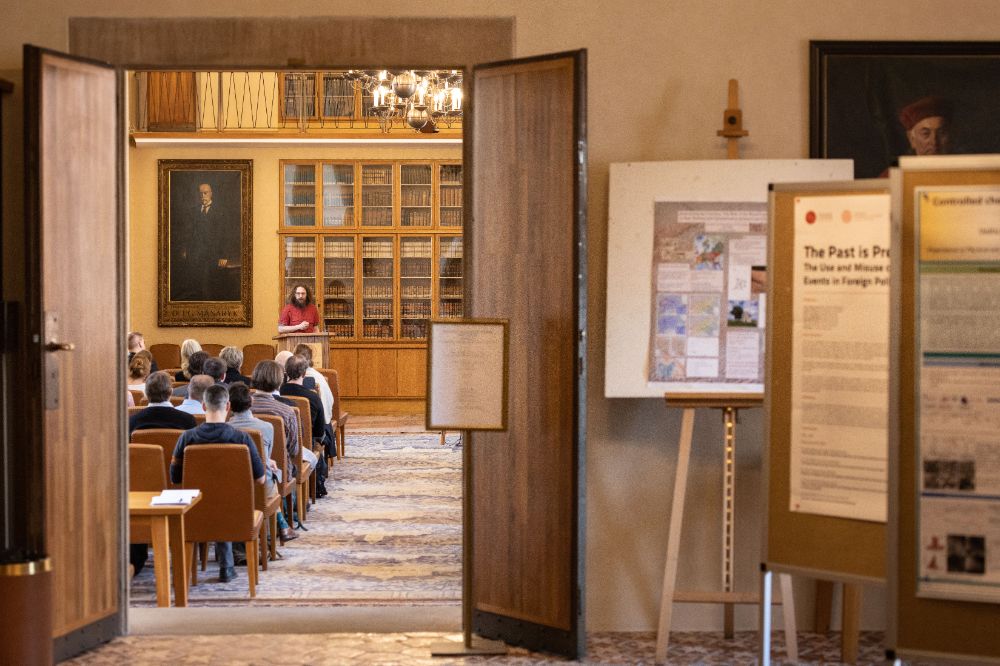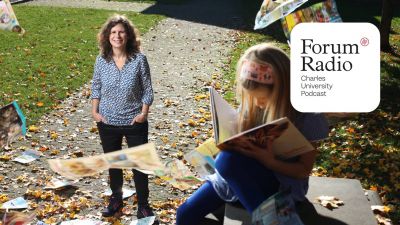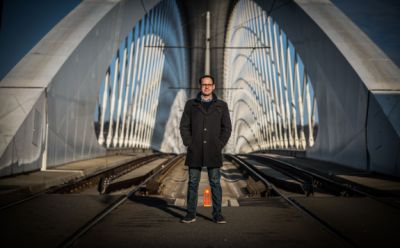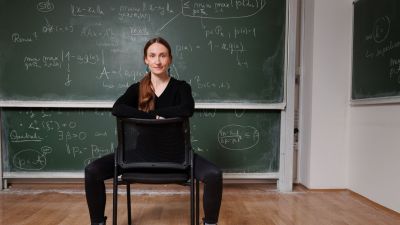To date more than 140 promising young scientists have already received Primus support, granting them independence and the chance to start new research groups at Charles University. On Thursday, 80 new “Primus” hopefuls met at the all-important Primus Day conference.
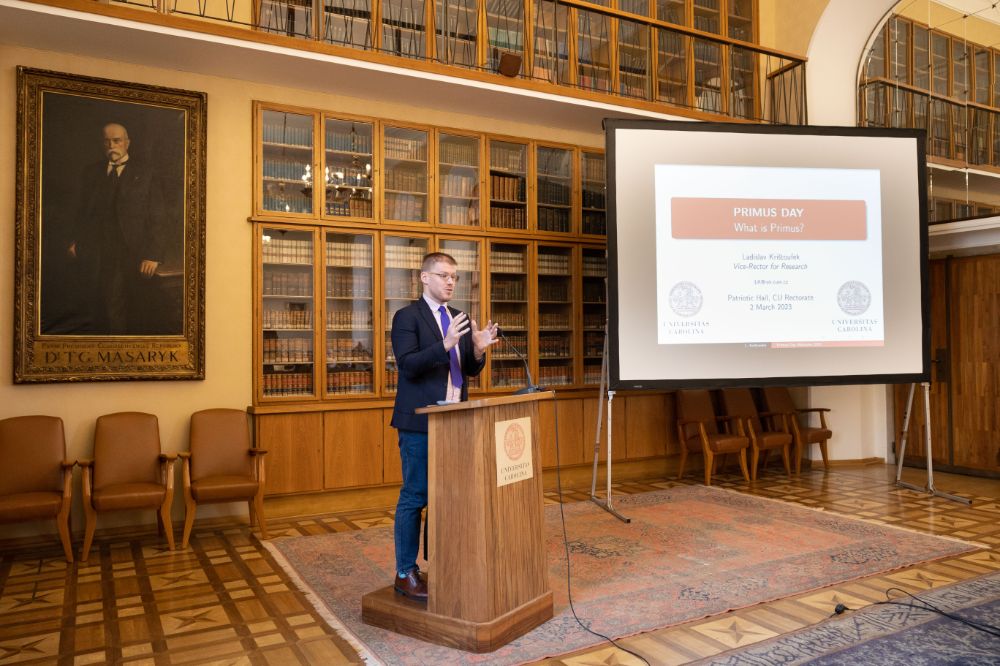
This year's Primus Day saw a presentation by the Vice-Rector for Research Ladislav Krištoufek.
“Primus is a unique chance to stand on your own feet and develop your own research ideas,” says Jan Kudláček from the Second Faculty of Medicine of Charles University, who launched his Primus project focused on epilepsy research in January this year. With his newly formed team, he is investigating when epileptic seizures occur and whether they can –to a certain degree – be predicted. To patients with epilepsy, seizures often seem random, but it turns out that that there are periods of high and low seizure probability. “Primus provides the freedom and opportunity to experiment and take a bit of risk and see which research approaches work and which don’t, thus better prepare for getting other grants, perhaps even European Research Council (ERC) grants," Kudláček explains.
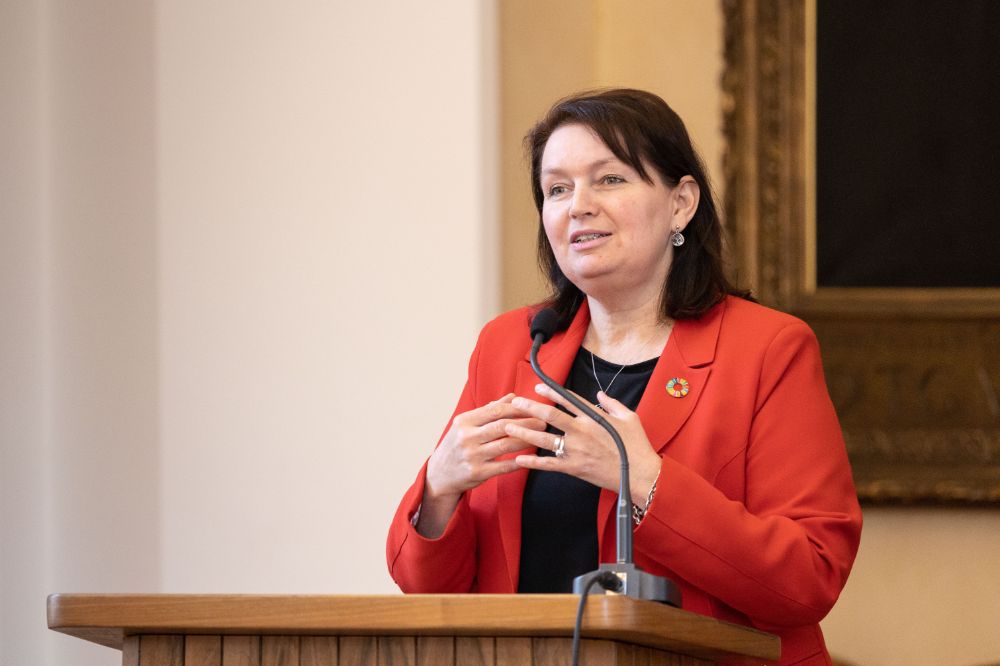
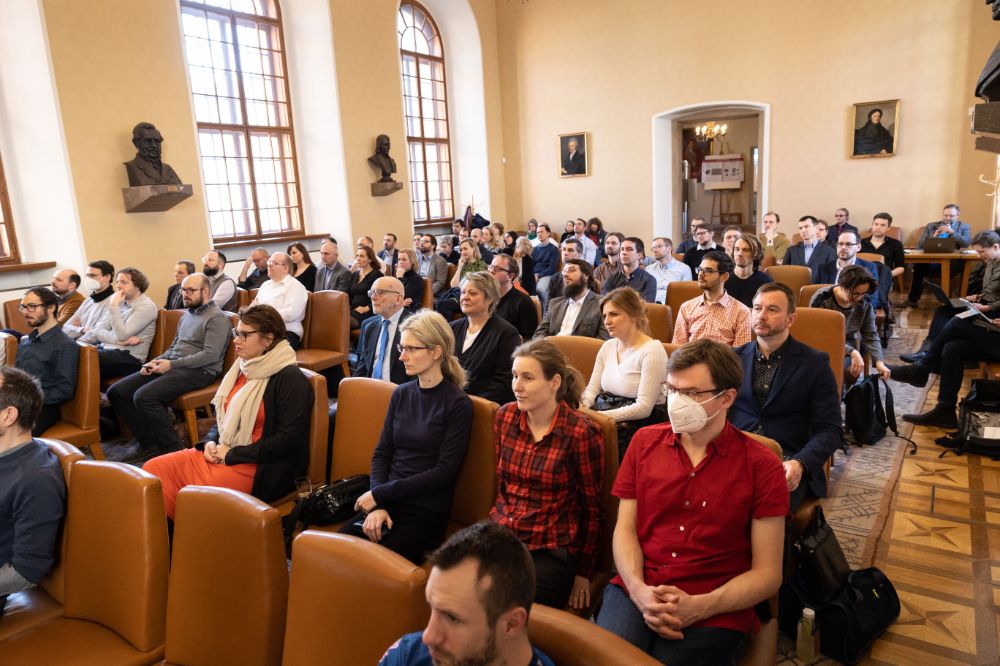
Primus Day was opened by the rector of Charles University, Milena Králíčková.
His words are confirmed in practice by evolutionary biologist Filip Kolář from the Faculty of Science of a Charles University, who received Primus support in the very first round in 2017 and subsequently succeeded in applying for a prestigious ERC Starting Grant in 2019. Thanks to Primus support, other groups were then established in our department, which enriches the whole research environment significantly and we all benefit from it.”
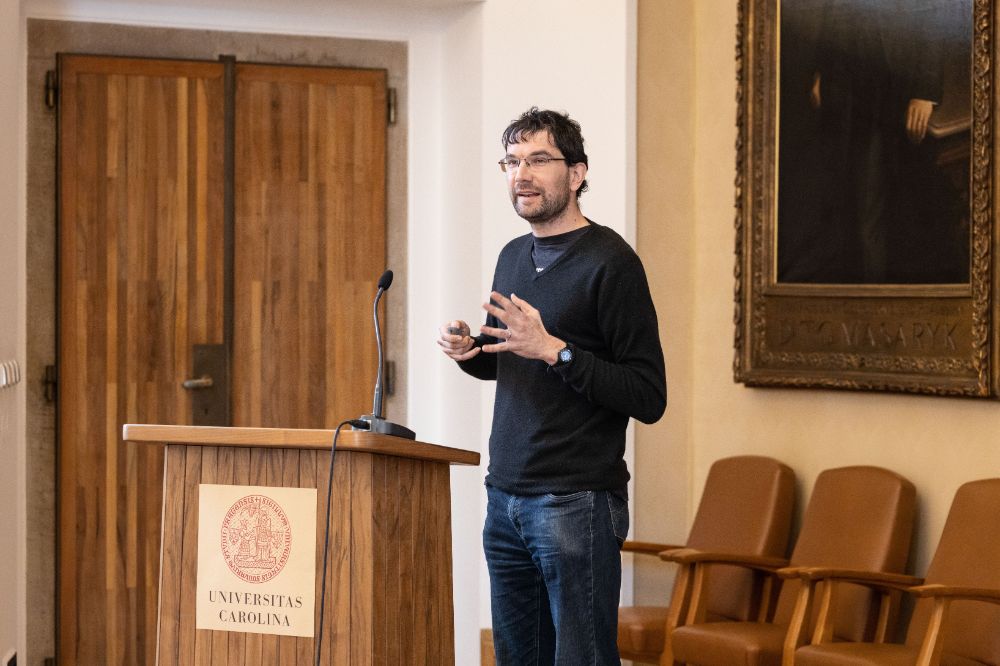
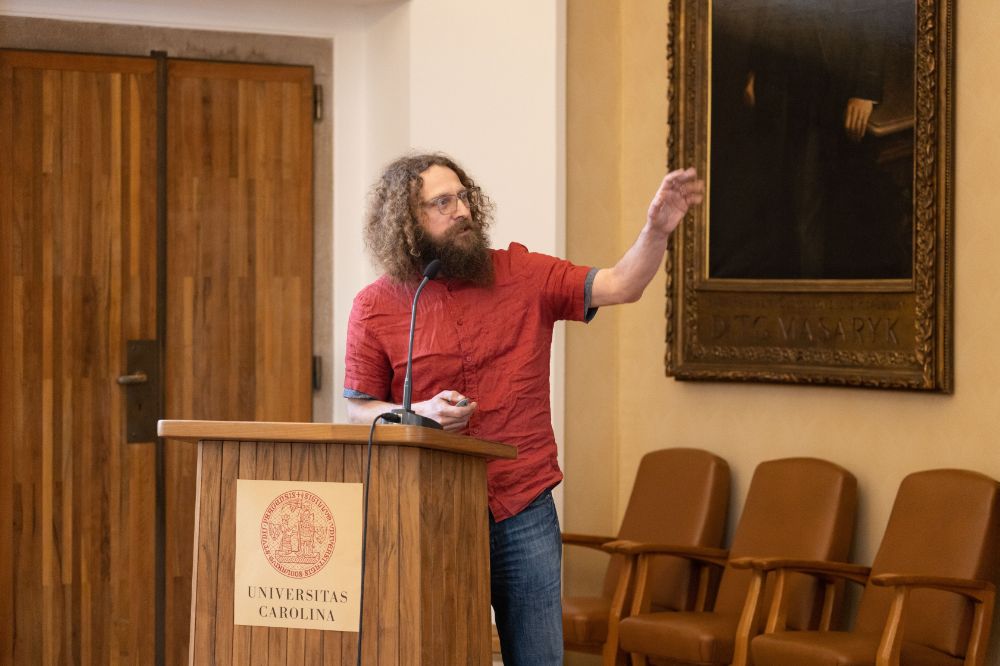
Filip Kolář (left) and Libor Barto shared their experience of clinching prestigious European ERC grants.
Changing the academic environment, but also increasing the success of Charles University in obtaining international grants, is one of the long-term goals of Primus support. “It makes sense to try for an ERC just for the sake of thinking about the direction of research for the next five, 10, or even more years ahead. Get out of your comfort zone of thinking and try, even if sometimes a bit painfully, to get further, to push your research,” is what Filip Kolář recommends. You won’t get anywhere treading water or standing still. During this year's Primus Day, Libor Barto from the Faculty of Mathematics and Physics of Charles University also shared his experience with ERC grants and stressed the need for original ideas.
Conditions for excellence
“Science cannot be controlled, science can only be given the right conditions,” says Zdeněk Strakoš from the Faculty of Mathematics and Physics of Charles University. Professor Strakoš has long sought to increase the success rate of Czech applicants for ERC grants. “If we do not create such conditions, we will remain in mediocrity or even below average, because the world around us will not stop. Science is fundamentally based on curiosity, it needs the freedom that allows creative thinking,” he emphasised during the morning lecture. He also mentioned the manual VADEMECUM - European Research Council (ERC) Grants, which was created at the Prague Technology Centre on the basis of workshops organised together with the Expert Group for Supporting Applicants in ERC Grant Calls.
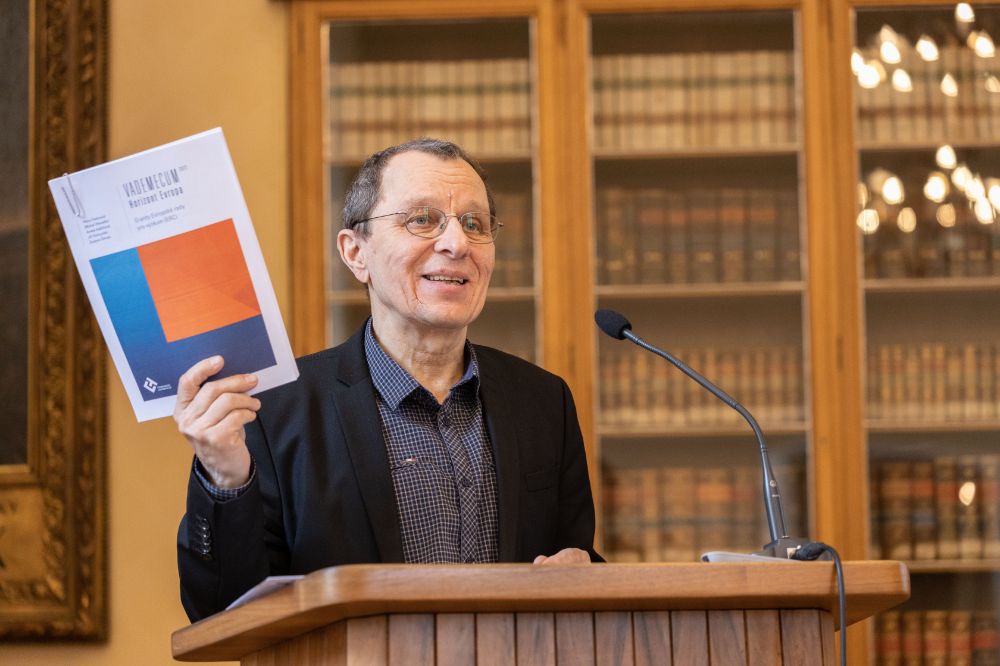
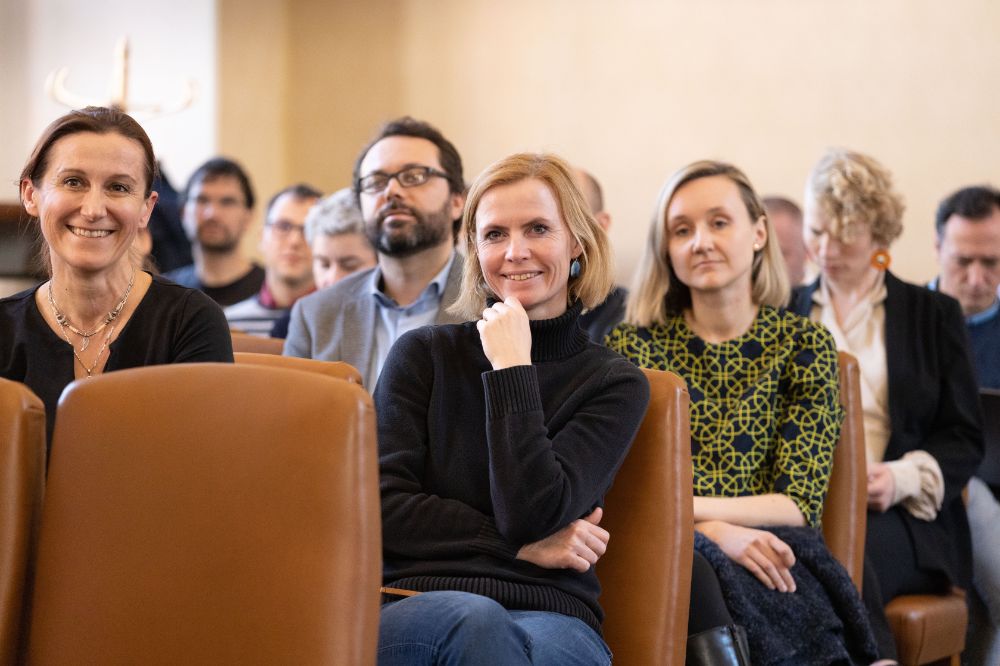
Zdeněk Strakoš has worked diligently and selflessly over the years to increase the success rate of Czech applicants for ERC grants.
For example, Anežka Kuzmičová from the Faculty of Arts, Charles University, who researches reading and experiencing stories and information, spoke about the importance of support and conditions. “I would appreciate mentoring and more support. Suddenly you become the leader of the group, but no one taught you before. Yet people and well-functioning teams are the key in science.” During her lecture, she also mentioned the newly established Young PI Forum - a joint project of Charles University and the Czexpats in Science initiative that aims to create a space for sharing, learning and networking among junior research group leaders working at Czech institutions.
Primus: attracting top scientists from abroad
“Initially, Primus attracted mainly Charles University graduates, but increasingly it is attracting scientists from abroad who have not worked at Charles University before,” says Roman Hošek, the chief officer of the Primus programme. In his view, the main benefit of Primus Day is that experienced Primus researchers ie. previous recipients meet with those who are starting out and with future applicants, and there is an effective exchange of experience and advice on how to recruit students, how to choose a publication strategy or when and how best to start preparing follow-up grants. “The interest and prestige of Primus grants has been growing every year. It helped that this year we introduced several changes that reduced the overall paperwork further ‘freeing’ researchers. In the past, for example, the shape or form of individual research teams had to be defined, but we have abolished that since this year's round,” says Hošek.
Proposals for the Eighth Primus CU competition can be submitted until 20 April 2023.


